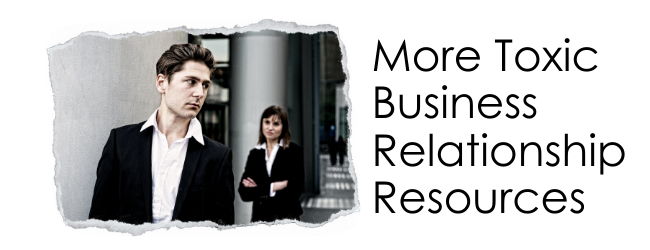Toxic work environments cause people to question themselves and their judgments. Sometimes it becomes difficult to know if you are doing a good job, or not, because of the negative feedback or response.
We’re going to break this article down into two sections:
- Common Characteristics of a Lightning Rod
- Tips for Grounding Yourself and Dealing With Business Bullies
Common Characteristics of the Lightning Rod
Is This What You are Experiencing?
You’re an expert at what you do. You take your work seriously. You are probably a perfectionist and always try to do an excellent job. You have high values and standards for yourself and your work. You see the wide-ranging impact of your work on other facets of the work in your department and the company. You “walk your talk” meaning you are consistent and aligned in all your talk and actions. You are a professional and try to stay “adult” in all your interactions.
More often than not, but not always, you are female. Your age, stage in career, or experience level does not matter. At other companies you always got along; It’s surprising or hard to figure out why you are treated this way. No matter what you do it seems to draw negative attention or reaction. Even the people you supervise know you are on a “hit list” from above. Your self-esteem is plummeting. You used to feel appropriately confident in your skills. Now you are plagued with self-doubts. You dread going to work.
Common Characteristics of A Toxic Work Environment
It may be that you are in a toxic workplace. Here are some of the dysfunctional characteristics of a toxic environment. You may experience some or all of them.
You have a boss, supervisor, manager, director that is male or female.
- Chooses “favorites.”
- Is inconsistent in what they say and how they behave (e.g. nice to your face, but gossip, undermine behind your back.)
- May talk PC but do not act with integrity so it’s just talking.
- May not follow through consistently in individual supervisory meetings or annual reviews.
- Or limits your actions by frequently saying “no” privately or during supervisory meetings.
- Demands you “ask permission” for even small things.
- Cannot be trusted to back you up.
- Blames before gaining all the facts.
- Always has one scapegoat or a series of scapegoats.
- Is verbally abusive or may overtly demean you (or others) in team meetings.
- Or does this privately when no one else is around to witness.
- Is threatened by you for whatever reason and therefore undermines your work, does not support you, your work, or your leadership.

The culture of such a company or corporation—Top on down
Is not supportive of growing the employees. They may say they are but their actions do not follow. Has a “sink or swim” attitude. It does not discourage gossip or tattling among employees and supervisors. Encourages (by not saying “no”) cliques and insider/outsider behavior among employees by rewarding those who figure out how to stay on the “favorite” list, even when it is not aligned with big picture values or ethics. Leaves it unclear if the H.R. department takes the side of the company culture, so leaves employees with no safe place to turn.
Yuck. This is not a pretty picture, is it!?
Okay. Here’s the deal. For some reason—probably partially due to your professionalism, ethics, and high standards and partially due to an extremely unsupportive (and probably abusive or bullying) work environment or superior whose actions are condoned—you have been singled out. You’ve become a Lightning Rod for the attention and it is negative attention.
In my experience coaching many professionals, this is a losing battle, especially if the characteristics of the work environment fit your situation. So I want to give you specific short-term tips to “ground” the lightning rod characteristics and some long-term advice.
Tips to “Ground” Your Lightning Rod Aspects
Please refer to the article Are You A Target for Negativity In a Toxic Work Environment? That article includes 10 Tips to “Ground” Your Lightning Rod Aspects. These suggestions may feel counter-intuitive, but they are recommended specifically for THIS situation you are in right now. They are recommended because in THIS environment your wonderful qualities are drawing negative attention. They are not serving you in the here and now.
Other Tips for the Short-Term
Reality checks. Where possible turn to friends, your mate, or preferably other people in your field who have had similar experiences or know about the culture or company your work in. They may be able to offer feedback and support.
Find a mentor in another company who can advise you in the present. This relationship needs to be confidential, but a good mentor should be able to advise you on.
Tips for the Long-Term
- Get an experienced career coach who can walk you into a new, more positive future. You need to talk to someone with experience who can help you keep your head on straight, consider anything you can do, and help you look at options for getting out.
- Get a recruiter or two and begin a serious job search. You are in a no-win position and it is through no fault of your own. You are in a dysfunctional culture that either promotes bad behavior/lack of ethics in general, or turns a blind eye on abusive supervisors, bosses, or superiors.
- Accept that fact and make a plan to move on. Begin your search sooner rather than later. Your self-esteem is already plummeting and you doubt your capabilities. Cut your losses. The longer you stay the greater your chances of experiencing PTSD Post Traumatic Stress as a result.
- Have an employment attorney in your back pocket. Attorneys will very often give free advice until it turns to legal action. They often can tell you how to behave and what to say should your situation turn nasty, litigious.
- Document. Depending on how retaliatory your company or superior(s) may be, you may wish to document a running list of actions and the dates. Again an attorney can advise in this matter also.
So, the bottom line is, it’s too difficult to change the system. Move on. Take care of yourself and begin to make a serious plan to get out of the company.

ADDITIONAL HELPFUL READS FOR YOU
Resources to Help Reflect on Creating a New Career Path
- My website Blog contains many articles, tips, and suggestions to explore a career change or transition. This page includes those specific to the career transition topic, but feel free to look around and you may find others that are of help.
- Also, if you scroll down my FREE Articles webpage you’ll find 2 free downloadable Goal Setting Guides that will be helpful in setting goals and planning your next life and career move.
COACHING AND SUPPORT TO TRANSITION TO A BETTER POSITION
I hope these articles and resources have been helpful to you. If you are highly triggered, I recommend you reach out to a good therapist for support and to learn ways to manage your symptoms. If you need a referral please go to my calendar here and sign up for a 15-minute time slot. In the space provided, indicate that you are looking for a therapy referral. I will see if I can be of help.
When you are ready to explore career transition coaching, you may reach out for a Complimentary Conversation to explore your needs and how we might work together.
Contact Dr. Jan for a Complimentary call to discuss your needs here.
